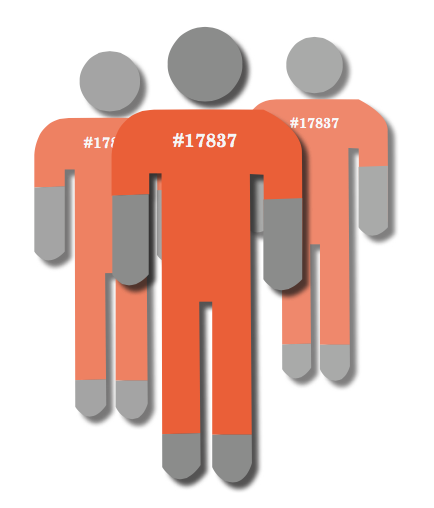More constitutional rights, less violent fights
November 3, 2016
Violent assault, cruel punishments, unyielding chains, tight shackles, and tender wounds are all characteristics of the Special Management Unit (SMU) at the United States Penitentiary, Lewisburg, less than a ten minute drive from the University’s campus. The restraints, the guards, and the conditions are unrelenting. A recent National Public Radio (NPR) podcast revealed the gruesome treatment of SMU prisoners at the Penitentiary, highlighting disturbing human rights violations. Fortunately, the Lewisburg Prison Project has made it their mission to represent prisoners through advocacy and legal assistance.
Inmates are placed within a six-foot by ten-foot cell with another prisoner in order to learn how to successfully coexist; however, what often characterizes these cells are the volatile breakout of fights. Unfortunately, most inmates are given two distinct options: to be locked with a violent cellmate or to endure restraints. The prisoners are subjected to these tight conditions for 23 hours a day and are granted one hour of recreation, five days a week. Sometimes, however, the staff punishes the inmates by removing their recreational privileges. Aside from three 15 minute showers per week, the inmates receive no other respite.
Special Management Unit Exposed
NPR exposed the true horrors of the SMU at the Penitentiary within their recently published article entitled “Inside Lewisburg Prison: A Choice Between A Violent Cellmate or Shackles.” NPR reported that the involvement of SWAT guards are often necessary to break apart brawling cellmates. The article noted several instances of SWAT guards intervening in altercations in which a prisoner has been found kicking a roommate lying in the fetal position, another where a prisoner tore off half of his cell mate’s ear, and an another where an inmate slashed his cellmate with a razor blade.
In 2014 and 2015, 228 in-cell fights and assaults were reported, 19 of which called for inmates’ treatment for injuries, which were recorded to have included, “a collapsed lung, a broken rib, multiple stab wounds and head injuries.”
Alarmingly, the Penitentiary has a six times higher rate of inmate-on-inmate assaults than that of other prisons. Inmate Royce Brown was imprisoned for 20 years for drug and gun possession. His cellmate made the cell nearly unbearable to share, and one morning reported, “We can’t live together no more. I’m gonna make ‘em gas us.”
After begging correctional officers to separate him from his cellmate, Brown decided that violently attacking his cellmate was the only way to be removed. Surveillance footage reveals handfuls of officers running to break apart the fight with pepper spray, chaining Brown’s hands, ankles, and chest, to which he responded screaming, “Goddamn these are tight. I can’t even breathe.”
Lewisburg Prison Project
The Lewisburg Prison Project is a non-profit organization founded in 1973 to assist inmates with the conditions of their confinement. They provide legal and other assistance to prisoners in Central Pennsylvania and raise awareness on the topic of human rights for inmates. Paralegal Dave Sprout and legal assistant Elayne Sobel are presently the two active members working with the LPP.
The pair receives over 250 letters from inmates telling of the inhumane and/or illegal conditions of the SMU unit at the Lewisburg Penitentiary. Sprout expresses that the cell space does not allow the two inmates to even stand at the same point in time, let alone execute all of the necessary bodily functions. Many prisoners express their concerns regarding the cell guards’ violent disciplinary methods.
Sprout said, “We are not against prisons, but the inmates must be treated humanely,” upon which he added that the guards have complete control over the prisoners and are essentially, “making a mockery of the justice system.”
As previously noted, the pair of prisoners have the potential to be split apart only if one poses a threat to another. Hence, a great deal of the inmates only request separation in order to avoid future altercations, but these prisoners are noted as threatening, and unfortunately, this is the reason for which the conditions of isolation consist of chained restraints that leave wounds and scars for months to follow.
Sprout and Sobel arduously work to support five federal prisons, 12 Pennsylvania state prisons, and 33 Pennsylvania county prisons. Although it’s easy to believe in the phrase “if you do the crime you do the time,” the time that the prisoners within the SMU are serving is not being conducted humanely. The LPP works to fight for the inmates’ constitutional rights that are clearly violated through the inhumane treatment and punishments executed within the SMU.
For further information, please visit the LPP’s website: www.lewisburgprisonproject.org






















